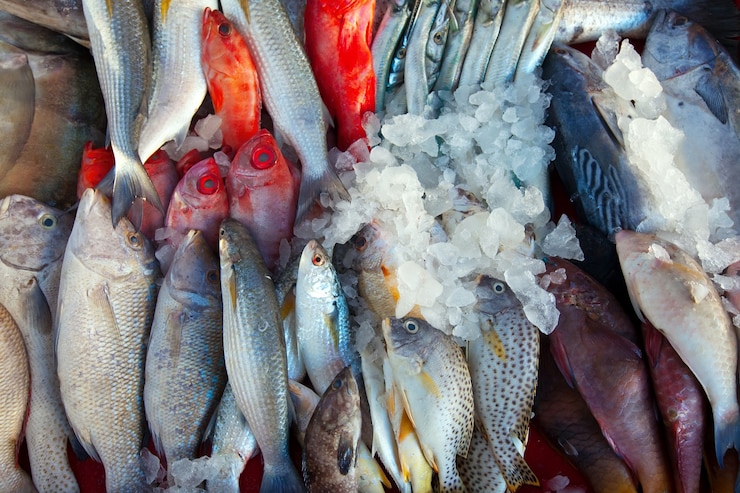When engaging in fish farming in South Africa, it’s important to be aware of potential infections and diseases that can affect your fish population. Here are some common ones to watch out for:
- Aeromoniasis:
This bacterial infection affects various fish species, particularly tilapia. It can lead to symptoms such as skin ulcers, fin rot, and hemorrhages. Adequate water quality management and strict biosecurity measures can help prevent and control aeromoniasis. - Vibriosis:
Vibriosis is caused by Vibrio bacteria and affects both marine and freshwater fish. It can lead to symptoms like skin lesions, swollen abdomen, and hemorrhages. Maintaining good water quality and implementing proper hygiene practices are crucial to prevent vibriosis. - Ichthyophthiriasis (Ich):
Ich is a common parasitic infection caused by Ichthyophthirius multifiliis, also known as “white spot disease.” It appears as white spots on the fish’s skin and fins. Adequate filtration, regular water changes, and effective treatment protocols can help control and prevent Ich outbreaks. - Infectious Pancreatic Necrosis (IPN):
IPN is a viral disease that affects several fish species, including trout and salmon. It can cause high mortality rates in infected fish. Implementing strict biosecurity measures, including the use of disease-free broodstock, can help prevent IPN. - Koi Herpesvirus (KHV):
KHV is a highly contagious viral disease that affects common carp and koi fish. It can lead to significant economic losses in fish farms. Strict biosecurity measures, quarantine protocols, and regular health monitoring can aid in preventing KHV outbreaks. - Streptococcosis:
Streptococcal infections caused by bacteria like Streptococcus agalactiae and Streptococcus iniae can affect various fish species. It can cause symptoms such as skin lesions, exophthalmia (protruding eyes), and septicemia. Strict biosecurity measures, maintaining optimal water quality, and regular health checks can help prevent streptococcosis. - Motile Aeromonad Septicemia (MAS):
MAS is a bacterial disease caused by motile aeromonads, including Aeromonas hydrophila. It affects various fish species and can cause symptoms such as hemorrhages, bloating, and skin ulcers. Strict biosecurity measures, regular health monitoring, and appropriate antibiotic treatments can help control MAS.
To effectively manage the risk of infections and diseases, it’s crucial to maintain good water quality, provide proper nutrition, implement strict biosecurity protocols, and regularly monitor the health of your fish. Consulting with local fish health professionals, veterinarians, and experienced fish farmers in your region is highly recommended for specific guidance on disease prevention and control in South Africa.
Join 'Farmers Mag' WhatsApp Channel
Get the latest Farming news and tips delivered straight to your WhatsApp
CLICK HERE TO JOIN






